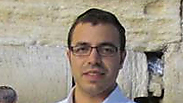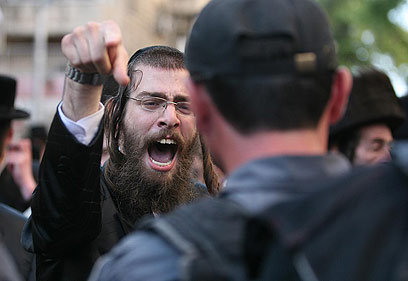

If this were not an issue that defines the place of the haredi community in the Israeli society, I would have thrown the survey away. But it isn’t so: These figures affect the our overall integration - from entering the labor market to political moves that are in haredi public's interest.
The profound hatred between the Israeli society and the haredi public is wreaking havoc and has far-reaching consequences. The haredi public feels this hatred on a daily basis. There are few haredim who have not encountered the terms "parasite," "freeloader" and other gems.
It does not only project on us in such a significant way, but also on the "hating" side - the secular society. Why do "they" hate us so much? And who are those people who are lashing out at an entire public that way?
You should actually love us
The haredi public should allegedly be the most popular and admired sector. Despite the unfounded hatred within the sector, despite the wars between rabbis, despite all that - the haredi sector is educated with Jewish values, preserves the Jewish tradition, nurtures countless associations and organizations which help hundreds of thousands of families from the entire Israeli society, and starts businesses which serve tens of thousands of seculars.
So how is it possible that we have been topping the list of the most hated sector among the Israeli public for years?
Considering the haredi society's contribution to the Israeli public, there is no room for the horrible hatred towards us. It is blind and subconscious hatred. You say haredim? You mean "draft dodgers," "freeloaders," "dustbin burners" and what appears to be "the most significant threat to the Israeli society."
In the very same breath, more and more circles of discourse are being held in recent years between haredi and secular Jews, bringing them closer together and generating an understanding between the sides. This process is apparently not significant enough to break the dichotomy between the different sectors and reduce the level of hatred (on both sides, by the way).
Some haredim see they media, which they believe cover the haredi society unfairly, as responsible for the hatred among the secular public. Others just bury their heads in the sand and move on. But my request is that we take responsibility and bring the criticism in, engage in introspection. Otherwise, we won't be able to put our house in order.
Haredi parties are creating hatred
In my opinion, the main factor creating the hatred towards us is the haredi parties. It's true that the haredi politicians are excellent parliamentarians, and there is no doubt that they are people of action. Quite often, they receive feedback from different sectors. It's true that hardly any corruption scandals have been linked to the haredi representatives.
And despite all that, the haredi parties evoke huge antagonism among Israelis. Shas and United Torah Judaism are perceived as "extortive" parties, which "steal public funds," and every time they join the coalition it evokes waves of rage - alongside despair of the government. This despair leads to the deep hatred towards us.
And this despair serves everyone: The haredi politics - and the secular politics. It creates a ping pong between the haredi MK who wants the same education for all, and the haredi MK who "shows" his sector just how much he is doing for them. And here's the result: 30 percent of the seculars hate us.
When will the hatred decrease?
You’re asking when will it end? It will end the day the general parties have more haredi representatives. Haredim can influence their society considerably even from the Labor Party or the Likud - without creating hatred between the sides.
That day will come. It's only a matter of time. The haredi parties won't disappear, and that's okay. MK Moshe Gafni (UTJ) is one of the best parliamentarians in the Knesset. But at the same time, the general parties will also have haredi representatives, and the walls will collapse - along with the level of hatred.
Until then, we will remain on the Israeli society's hatred list - in the first place. At least give us a medal.

















